In our nineteenth edition of the Donut Dollie Detail, Agnes Fortune tells how seeing friends from college going off to Vietnam prompted her to take the patriotic step towards joining the Donut Dollies, recounting the danger of flying in a helicopter and riding in a Jeep in a combat zone, and that upon arriving home, she discovered that all other jobs were boring compared to the work she did in Vietnam.
Please share the Donut Dollie Detail with family, friends and veterans you may know, and make sure to like/follow us on Facebook to learn when the next edition is posted. You can also share your email address with us at list@donutdollies.com for updates on the upcoming release of the Donut Dollies Documentary (we will not share/sell your email and will only use it for Donut Dollie related updates).
Please meet Red Cross Donut Dollie Agnes Fortune…
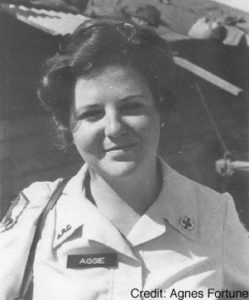 What prompted you to join the SRAO (Supplemental Recreation Activities Overseas) program and want to go to Vietnam?
What prompted you to join the SRAO (Supplemental Recreation Activities Overseas) program and want to go to Vietnam?
I graduated from college in 1968 and every male I went to school with was going to Vietnam. I also wanted to do something on my own that was patriotic.
When and where were you stationed in Vietnam? Did you go by a nickname?
I was stationed at Blackhorse in Long Kahn Province (11th Armored Cavalry under Col. Patton, the General’s son) from about November, 1968 to the end of January, 1969 and I served with Donut Dollie’s Lola and Kay. I then served in Cu Chi (25th Infantry Division) from January, 1969 to July, 1969, where I replaced Dorset Hoogland Anderson (featured in the upcoming Donut Dollie Documentary), and served with Karen, Judy, Cindy, Lou, Jane, and Carolyn. My last base was Long Binh (also known as II Field Force with the 199th Light Infantry Brigade), where I served with Ellie, Betty and others. While in Vietnam, I went by the nickname of Aggie.
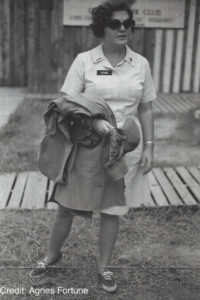 What was a routine day like in Vietnam?
What was a routine day like in Vietnam?
Those areas I served in were all combat zones, so my routine day was flying by helicopter out to about 6 fire support bases and “putting on” our programs with one other Donut Dollie. We would eat C rations in the field for lunch or serve and eat hot food if available. We would fly back to our base, take a shower and go to a stand down of troops we saw when they were back in base camp.
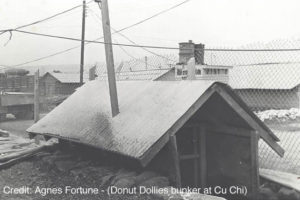 Did you ever have any “close calls” either on base or in any vehicles?
Did you ever have any “close calls” either on base or in any vehicles?
Yes, I had close calls. At Blackhorse, we were under threat of being overrun one night, because so many of the squadrons were out in the field – it didn’t happen, but we sat up all night in helmets and flack jackets. At Cu Chi, it was common to be rocketed at night and we would spend part of the night in our underground bunker, a boxcar – once at Cu Chi we were shot down in a helicopter, but were able to take off again and land safely at base camp. We would also be rocketed out in the field and once was shot at while riding in a Jeep at Tay Ninh.
Were you ever injured while in Vietnam?
I was never injured.
What was it like to visit the soldiers in the hospitals?
Working in the hospitals was the worst. During TET of 1969 we had a number of severe injuries at Cu Chi. We could not go out to the field, so we assisted on the critical care wards writing letters home to families describing the soldier’s injuries. I doubt many of those men made it home and feel sad knowing my letter was the last thing many of those loved ones got. We were told not to sign our names, because the families would try to find us back in the states to get details, which we probably would not remember, because there were so many injured. I wrote a letter for one soldier and his injuries were so severe, I couldn’t tell where his face was.
How was the transition returning home to the United States?
I did not come straight home. I hitch-hiked home for 6 months around the world. When I did get back in early 1970, no one wanted to talk about Vietnam. Finding a job was miserable, because the jobs were all so boring compared to Vietnam, my first real job.
What would you like people to remember and understand most about the women who served?
I would like people to know that we worked very hard and believed in what we were doing. We were not prolonging the war, just making it better for those who were there.
How do you feel Veterans think of your time having served with them? Have any Veterans expressed their feelings to you directly?
The veterans I have met have all been appreciative.
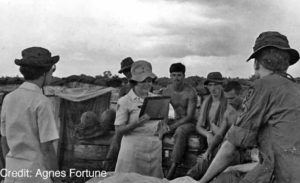 What are your fondest or most interesting memories of your time serving in Vietnam?
What are your fondest or most interesting memories of your time serving in Vietnam?
Fondest memories – I don’t know that I can think of one or two – everyday was jam packed with things to do – probably being out in the field was my favorite.
PLEASE NOTE: THERE ARE 18 PREVIOUS EDITIONS OF THE DONUT DOLLIE DETAIL THAT CAN BE SEEN HERE, JUST SCROLL DOWN TO READ EACH (AT THE BOTTOM, YOU’LL SEE A LINK TO GO TO THE NEXT PAGE OF DONUT DOLLIE DETAIL FEATURES)
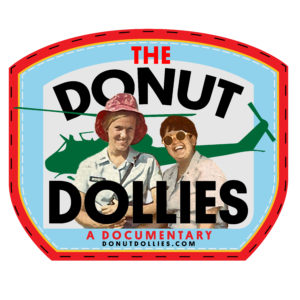
Dear Aggie, how well I remember you! I was at Long Binh from July to October 1969, my first assignment. I thought of you so many times over the years. You were always smiling and cheerful, and I was so hesitant out in the first those first months, so you were a wonderful role model. Hope you are well!
Annie (Craycroft) Carter
Agnes thanks for being there for us . You Donut Dollies made life for us bearable. You don’t realize how we appreciated you. Thanks again for your much needed service.
Thank you for your Service and Welcome Home!
George Bontya
Vietnam Veteran
Thank you for being there for us, for your service, your caring and your sacrifice , It is very much appreciated!
Gary Ashe
Vietnam Veteran